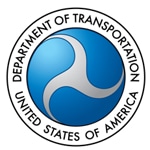
“Bus travel is increasingly popular because it is a convenient, inexpensive option for students, groups and families,” said U.S. Transportation Secretary Anthony Foxx. “But it must also be safe. Through Operation Quick Strike and our regular enforcement efforts, we’re shutting down companies that put passengers at risk and educating the public on safe motorcoach travel.”
The intensified effort was part of FMCSA’s three-phase Motorcoach Safety Initiative to raise the bar for safety in the motorcoach industry and to strengthen the agency’s oversight methods. More than 50 specially trained investigators were dispatched from April through November to conduct in-depth reviews into the patterns and practices of the 250 most at-risk motorcoach companies, identified using roadside inspection and safety data.
As a result:
- 214 top-to-bottom compliance investigations were completed*;
- 20 motorcoach companies were immediately shut down for violations and posing an imminent hazard to the public;
- 32 companies were issued “Unsatisfactory” safety ratings and shut down after failing to remedy critical and acute violations;
- 28 companies took corrective action to fix the safety violations investigators uncovered to avoid being shut down; and
- 340 vehicles, of the more than 1,300 vehicles that were inspected during the investigations, were put out-of-service for safety and maintenance violations.
- Company-wide failures to adequately maintain their buses, inadequate drug and alcohol driver testing programs and widespread hours-of-service violations were among the reasons companies were shut down.
In addition, inspectors assessed the levels of safety for more than 1,300 carriers that had minimal inspection history or data with the agency. More than 240 have been targeted for follow-up investigations.
“This year we evaluated and enhanced our investigation methods to dig deeper than ever before and uncover dangerous patterns of unsafe behavior and business practices,” said FMCSA Administrator Anne S. Ferro. “Now we are training all investigators to utilize the new tactics we employed during Operation Quick Strike, and encourage everyone who travels by bus to ‘Look Before You Book’ using the safety information on our website.”
Travelers and trip planners are encouraged to visit www.fmcsa.dot.gov/LookBeforeYouBook for tips and resources before buying a bus ticket or chartering a bus for a group trip. There they can find FMCSA’s free SaferBus mobile app for a quick and free way to review a bus company’s safety record, find multi-language check lists and report any safety violations.
Resources can also be found on FMCSA’s new “Look Before You Book” bus safety hub on Facebook.com/FMCSA.
*More than 30 companies had since transitioned to intrastate-only service, which FMCSA does not regulate, or had gone out of business.